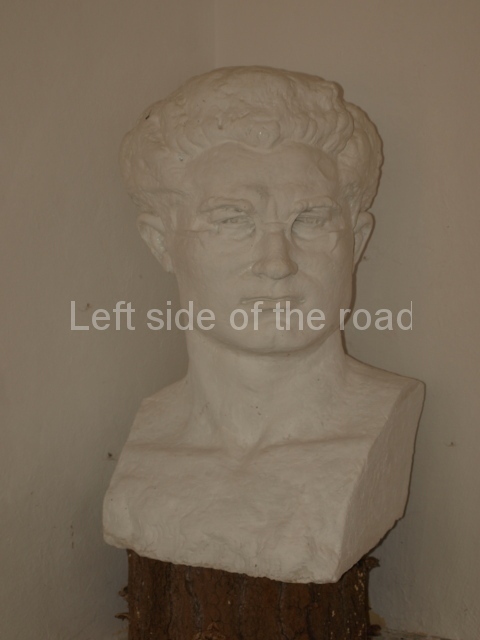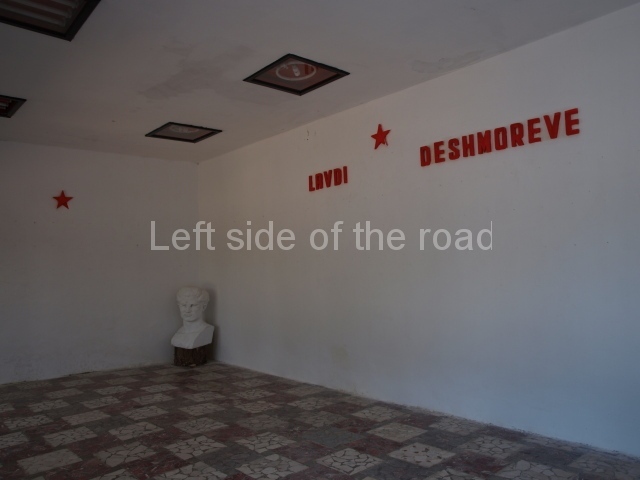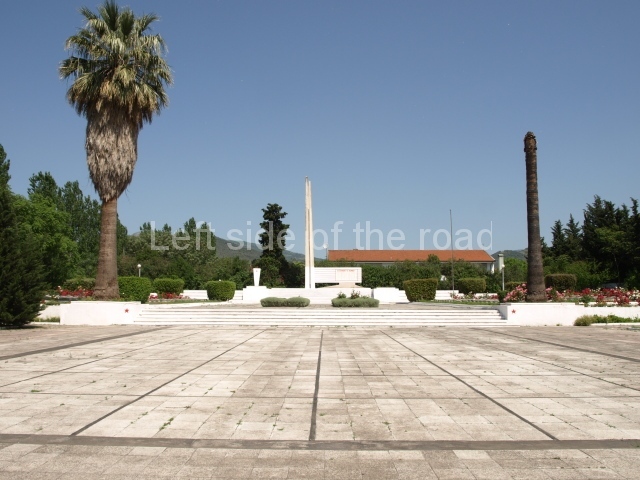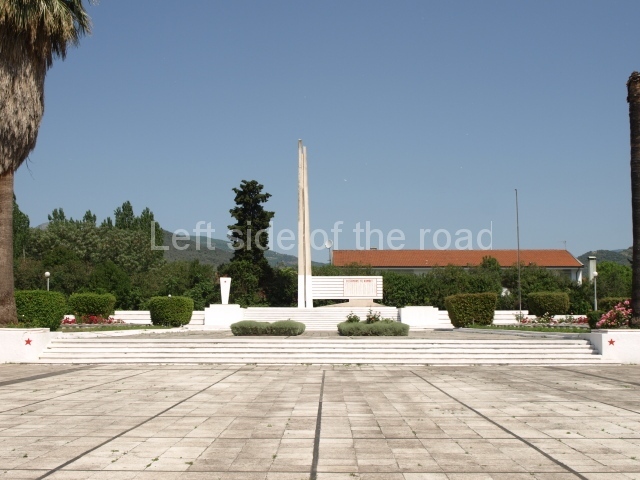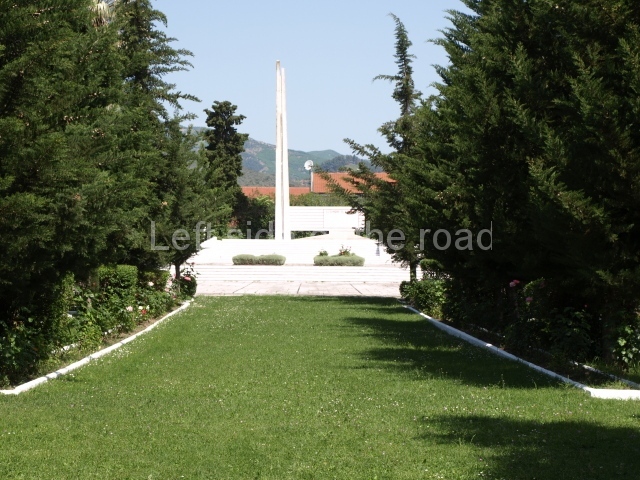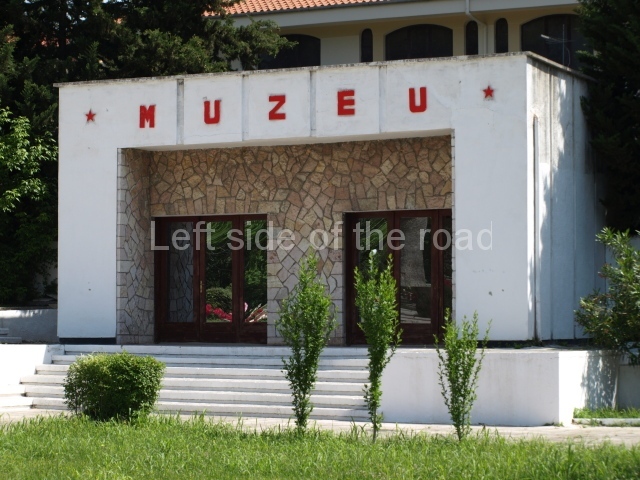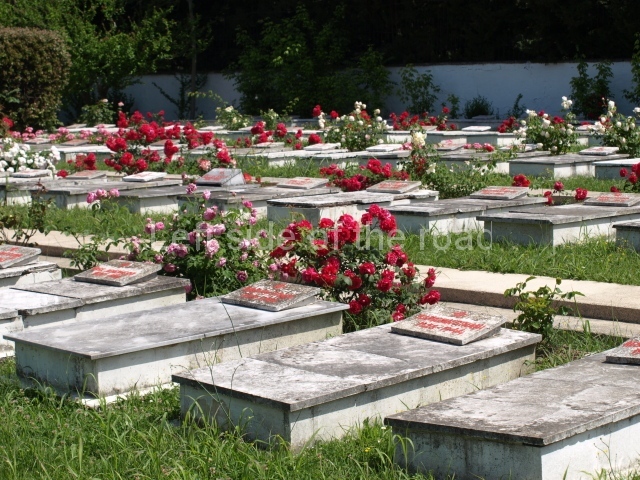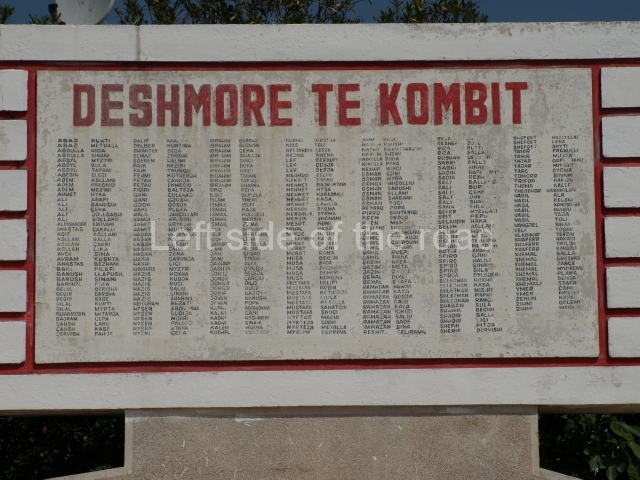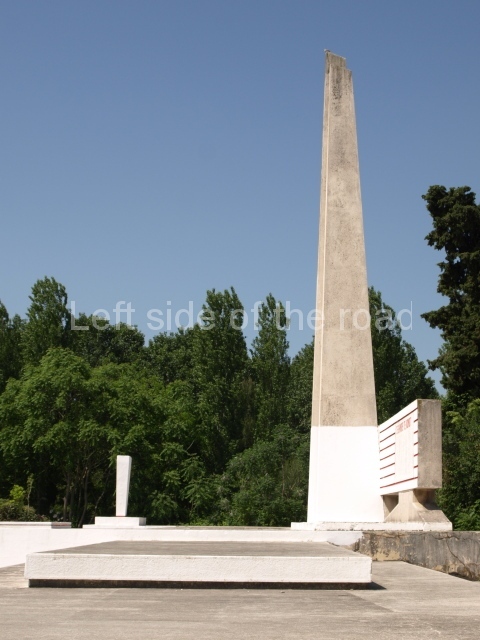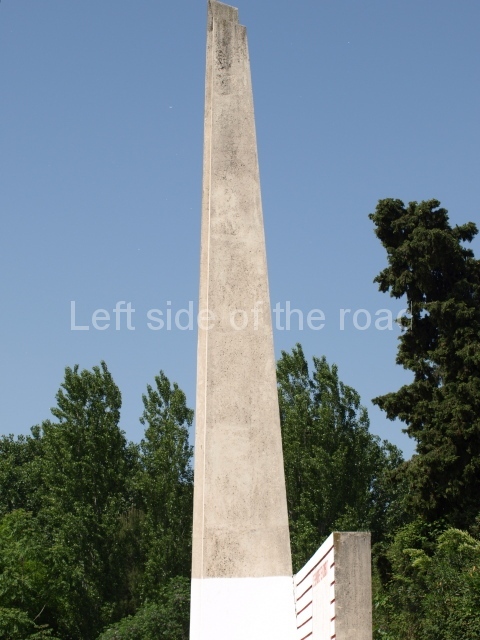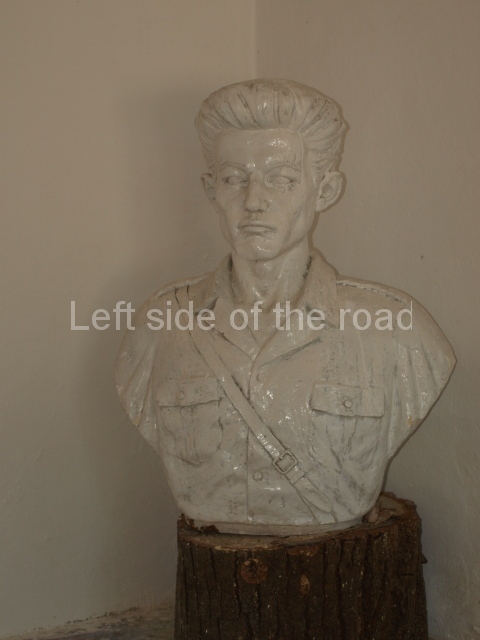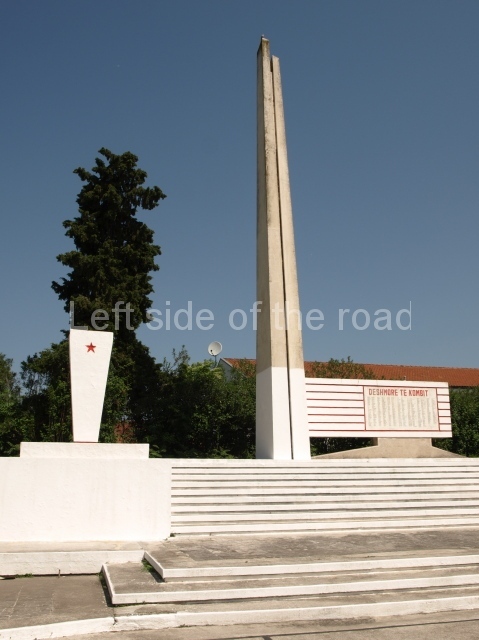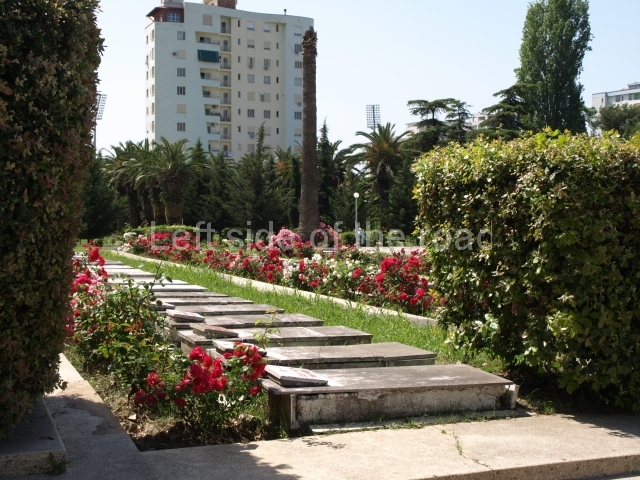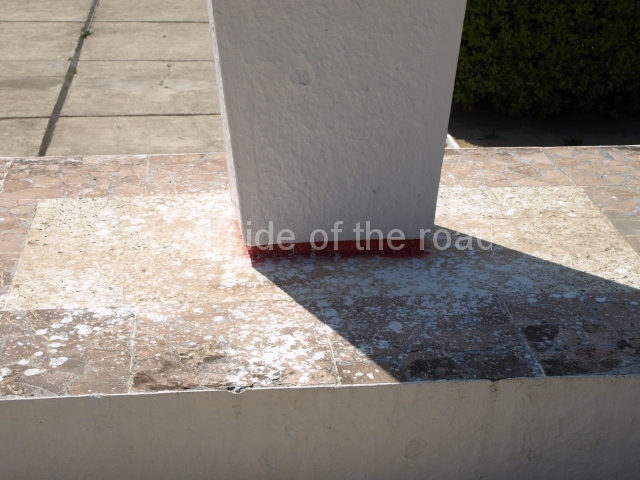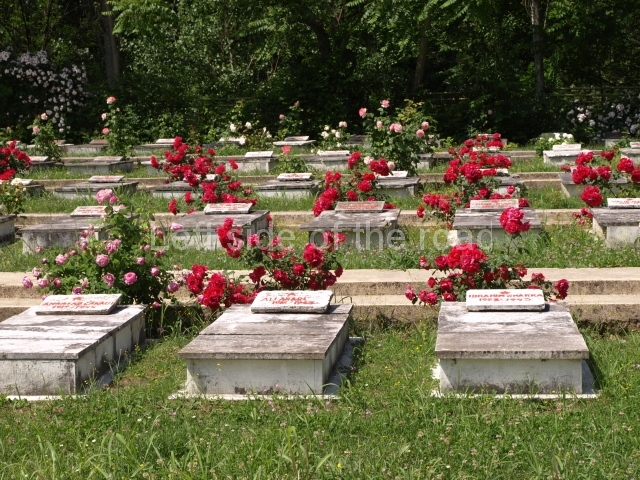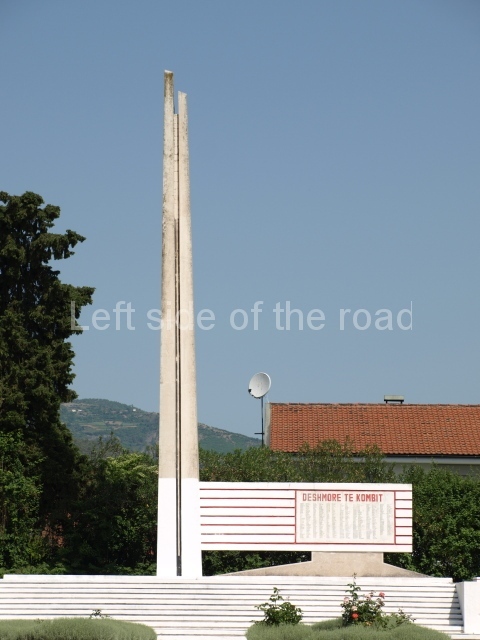
The planting of cubes of maize
Ukraine – what you’re not told
Introduction
This article first appeared in New Albania, No 6 1977. It is being reproduced here in an effort to counter the false claim that Albania, during it’s period of Socialist construction, was a state that was purposely isolating itself from the rest of the world, as well as putting the concept into a contemporary context.
Yes, Albania could quite easily have bought more powerful friends in the block in Eastern Europe dominated by the, then, Soviet Union. But to do so it would have had to throw any principles the Party of Labour of Albania had out of the window and kowtow to forces that were working against the development of Socialism throughout the world.
Yes, it could easily have joined the capitalist/imperialist grouping of countries, dominated by the United States but including countries like the UK, Germany and Italy – the latter two countries against whom the Partisans had fought in the National Liberation War and the first of which was constantly seeking to undermine the society with armed ‘regime change’ (although the term wasn’t around at that time) by using fascist and pro-capitalist nationalist groups to infiltrate the country to commit sabotage and murder.
In the period from 1944 to 1990 Albania had an understanding of what independence meant. They had achieved independence from the Ottoman Empire in 1912 but it wasn’t until the defeat of the Nazis on 29th November 1944 that the country could say it was finally able to determine its future.
The fact that the future the country wanted to build was that based upon the dictatorship of the proletariat with the aim of establishing Communism meant they had to face enemies (including erstwhile Socialist states) that couldn’t countenance such opposition to the way they saw a different future.
So whilst self-reliance is crucial to the development of any Socialist state (in the past and in the future) as in Albania for the 46 years of its Socialist construction, it also has relevant lessons and important points for many people of the world in the third decade of the 21st century.
‘Globalisation’, hailed as the best way to increase the wealth levels of the poorest of the world has only led to the exact opposite. Economies that did have a certain amount of independence thirty or forty years ago now find that everything they do is determines by some faceless group who gamble on the price of the goods they produce and having to deal with the inevitable price cuts that comes with this form of the ‘free market’.
This has effected in more serious and fundamental ways the countries in the economic ‘south’ but even the most established capitalist countries have felt the effect.
The campaign to get Britain out of the European Union was part of that fight back. Obviously not from the racists, the xenophobes, the ignorant, the frightened, the narrow-minded, the ‘nationalists’ of Scotland, Wales and Ireland who want ‘freedom’ from England but voluntary bondage to the EU and the opportunist politicians (such as our home grown Buffoon).
There were many who saw the history of the economic decline (both industrial and agricultural) of Britain since the mid-1970s as being a direct consequence of the country’s membership of the gang of European capitalists. Decisions made in their clubhouse were for the benefit of the capitalist system in general and had nothing to do with the conditions of the workers and the general population of their respective countries.
It won’t be easy for the people of Britain to build a country where the decisions are taken at a local level (as it wasn’t easy – and proved to be ultimately fatal to the Socialist society in Albania) but in the process it’s possible the British people will realise we need neither the cold comfort of united European capitalism to organise our society nor capitalism itself.
That self-reliance is something worth fighting for.
Self-reliance – a Great Marxist-Leninist Principle in the Construction of Socialism and the Defence of the Country
Self-reliance is a great Marxist-Leninist principle. It has a profound political, ideological, economic and strategic character because it is linked with the fate of socialism and its defence. This principle is linked with the strengthening of the state of the dictatorship of the proletariat and keeping it pure, against every danger of retrogression to capitalism and revisionism, because the implementation of this principle is closely linked with the preservation and strengthening of political independence, with the creation of a strong and independent economy, with the development of a national socialist culture and the preparation of an invincible defence. In the field of foreign politics, this principle is connected with the construction of an independent policy, to prevent it from becoming an appendage of the foreign policy of some other party, state or country.
The implementation of this principle is also linked with the preservation of national sovereignty and territorial integrity, not to make concessions or not to create different joint economic or financial companies with the monopolies of the bourgeois or revisionist states and to reject any offer of ‘aid’ or ‘credit’ from them.
At the 7th Congress of the Party of Labour, Comrade Enver Hoxha said, that for us, the principle of self-reliance is a law of the construction of socialism and its defence, as well as an imperative necessity in this direction. This is related to the fact that both the revolution and the construction of socialism can never be exported or imported. The internal factor is the determining and decisive factor both in the struggle for the triumph of the revolution and for the seizure of power by the working class under the leadership of the Marxist-Leninist party, as well as in the struggle for the construction of socialism and the defence of the country. The external factor also has its own importance, but, never is it fundamental; it does not exert its influence directly, but through the internal factor.
This principle eliminates from the Marxist- Leninist thesis on the decisive role of the people, led by the Marxist-Leninist Party in the victory of the revolution, in the construction of socialism and the defence of the country. Speaking about this question at the 7th Congress of the Party of Labour of Albania, comrade Enver Hoxha said among other things, that ‘self-reliance, demands, first of all, that we strongly rely on the creative, mental and physical energies of the people, led by the Party’.
For Albania, this principle, is, at the same time, an imperative necessity because the Albanian people are building socialism in the conditions of a savage imperialist-revisionist encirclement and their all-round blockade, in the conditions of the pressure which the big economic-financial and energy crisis which has the entire capitalist-revisionist world in its grip is exerting on its economy, in conditions when US imperialism, Soviet social-imperialism, the whole of world reaction, modern revisionism and old and new opportunism are hatching up plots and plans to overthrow socialism and restore capitalism in Albania and to perpetuate it in their own countries.
Self-reliance means: first, to rely on your own manpower and the creative energies of your people, under the direct and indivisible leadership of the Marxist-Leninist party; second, to rely on the natural wealth and the material-technical base created in the country; third, to rely on the internal resources of material and financial accumulations.
Self-reliance is not at all a temporary policy, merely dictated by certain external circumstances; it has always been and remains a general course in the policy of the PLA for the construction of socialism and the defence of the country, a course which has always been consistently implemented in every step of life, in the political or economic fields, in art, culture, education, science, defence, everywhere, in all fields and sectors of social life.
In Albania the construction of socialism and the defence of the country are realized by firmly relying on our own forces. This is a living reality, a reality which is based on several objective and subjective factors.
Today, the Albanian economy has a powerful material-technical base. Industry, as the leading branch of the economy is capable of broadly utilising the natural resources, energy and raw materials. The extracting and processing industries have been developed and not only does Albania meet all the internal demands and those of export, but conditions have been created so that apart from the output of pig iron and steel, other minerals will also be gradually processed, so that they can be exported like this and not as crude mineral, or so they can be processed further locally. Today, the engineering industry produces 85 per cent of the spare parts and in 1980 will produce 90 per cent of them; it is capable of preserving the exploitation of the material-technical base created in Albania and, together with the chemical industry and other branches it is gradually assuming the qualitative advance to produce machinery, the instruments of labour, that is to create the level of the independence of the economy with the principle of self-reliance requires.
The socialist agriculture, as the basic branch of the people’s economy is developing at rapid rates as a modern and multi-branched economy and it increased the production of bread grain by giving priority to this sector, thus meeting all demands for bread grain locally. Together with the light and food — processing industry, it has managed to fulfil 85 per cent of the country’s demands for mass consumption goods and in 1980 it will fulfil 95 per cent of them.
As a result of the entire development of material production, internal accumulation has increased a great deal, on the basis of which such possibilities have been created that during the 6th Five-year Plan (1976-1980) colossal investments have been made, chiefly from local resources, equal to those which have been made during the entire twenty year long period from 1951 to 1970 in Albania.
Self-reliance is a general and permanent course, a principle for every socialist country, big or small, a principle which is applicable both in the struggles for liberation and the proletarian revolution, as well as in the construction of socialism and the defence ol the Homeland. Not only does it not exclude cooperation and reciprocal aid between revolutionary forces and socialist countries, but it presupposes it. This is an internationalist duty of great importance not only to the interests of the country which receives this aid, but also for the country which gives it.
Remaining loyal to the teachings of Marxism-Leninism, the PLA has continually exposed all those ‘theories’ and enslaving practices of the two superpowers and the other imperialist powers, which, under the mask of ‘fraternal aid’, ‘development’ and ‘progress’ exert pressure on and enslave countries. They spread all kinds of false theories which weaken the conviction of the peoples in the possibilities of the construction of a sovereign life, and in general, in their existence as nations and free countries and they sow and spread the psychosis that allegedly without relying on one big power you can not develop as a free and independent nation. Their theories and practices are out and out reactionary and rapacious. This is clearly proved by the concrete neo-colonialist activity both of US imperialism and Soviet social-imperialism, as well as by the whole of world imperialist and revisionist reaction.
The bourgeois and revisionist propaganda has long since been speaking in the most unrestrained manner against socialist Albania, against the consistent implementation by the PLA and the Albanian people of the principle of self-reliance, accusing them, that allegedly, with the course they are following, Albania is isolated, that the advance along this course spells isolation, autarchic development etc. With this they are trying to cultivate the feeling of subjugation towards them and to legalize the policy of imperialist expansion and exploitation of other countries, to transform the countries and peoples into colonies, as they have, in reality, transformed all those who drag behind their chariot. As the Party of Labour of Albania and Comrade Enver Hoxha have always stressed, Albania has never accepted and will never accept the so called aid of the imperialists and revisionists, which, in reality, means nothing else but the subjugation of whoever accepts and receives it. ‘The imperialists and the revisionists’, said Comrade Enver Hoxha at the 7th Congress of the PLA, ‘call a country isolated which has closed its doors to invasion through enslaving credits, through the tourists and spies, through the decadent culture and degeneration. From this angle we are truly an isolated country and we will remain such with full consciousness.’
In reality, the entire economic-social development of socialist Albania and the correct and far-sighting policy of the PLA, with the high prestige which it has won for Albania throughout the world, reject all these calumnies. The correct Marxist-Leninist policy of the People’s Socialist Republic of Albania is respected and evaluated by the revolutionary and progressive forces, just as they evaluate all the achievements and progress of Albania during these thirty three years of free and sovereign life. Today, Albania has diplomatic relations with more than 80 different states of the world and with more than 40 of them it maintains relations of economic and cultural exchanges.
The Party of Labour of Albania and the Albanian people have always followed a correct road in the economic, cultural and social development of the country, relying on their own forces, and this is why the rates of development in Albania are higher and more stable than in any other country of Europe and amongst the highest in the world.





